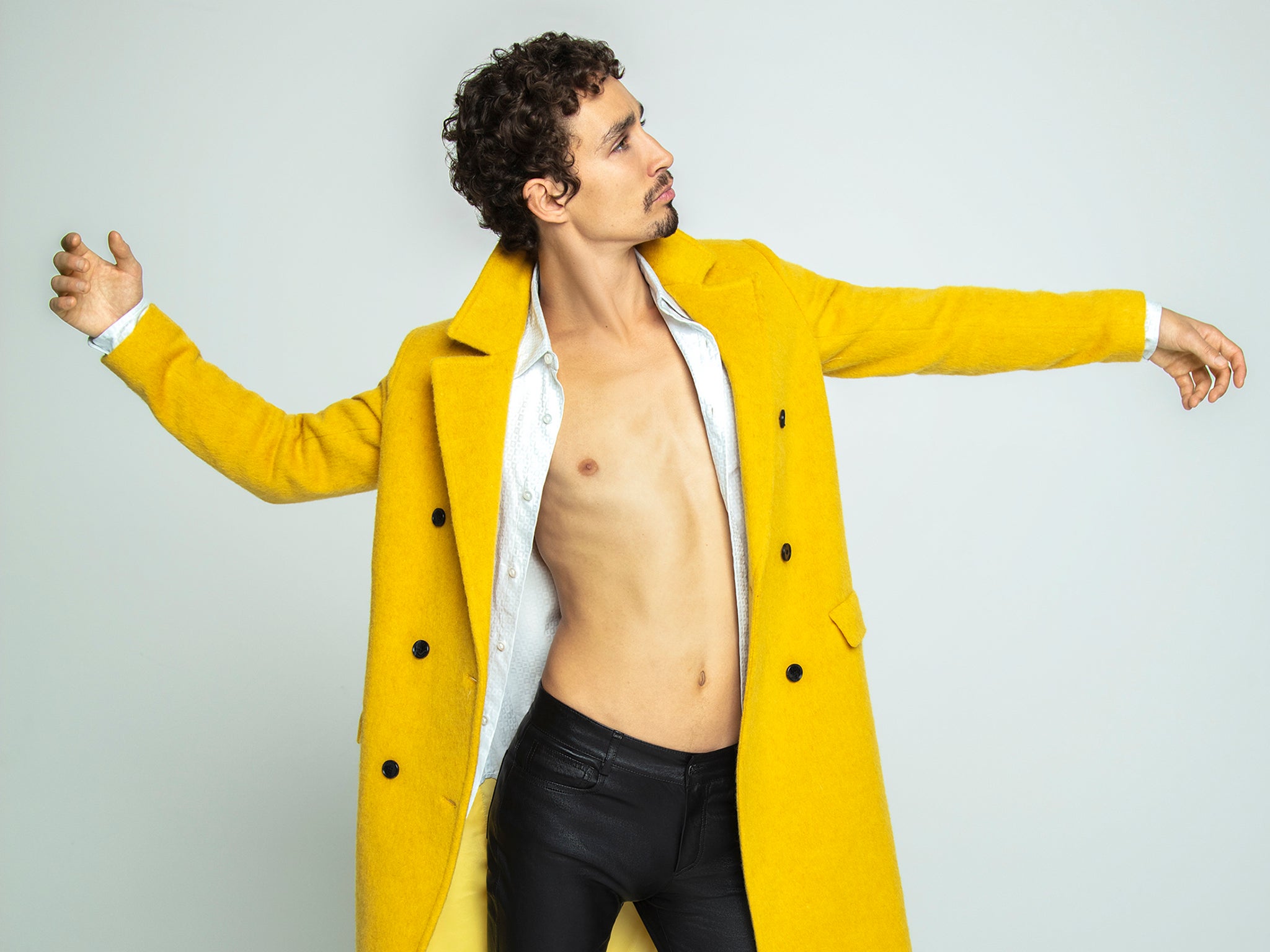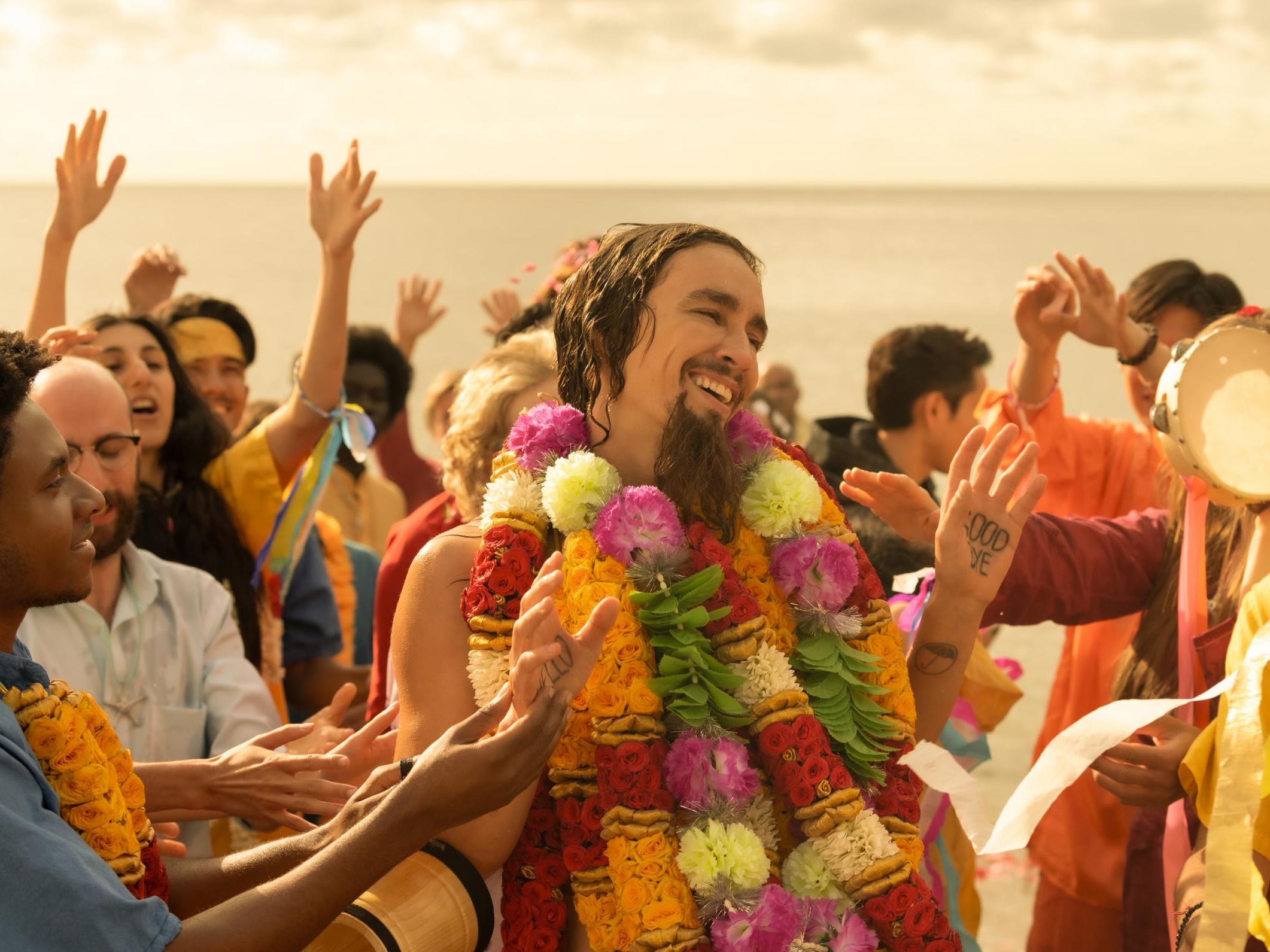Robert Sheehan: ‘Everything that’s not the government line gets labelled a conspiracy theory’
The star of Misfits and The Umbrella Academy talks to Louis Chilton about the Netflix show’s Dallas-set return, the existence of aliens, and why some celebrities just aren’t cut out for politics


Your support helps us to tell the story
From reproductive rights to climate change to Big Tech, The Independent is on the ground when the story is developing. Whether it's investigating the financials of Elon Musk's pro-Trump PAC or producing our latest documentary, 'The A Word', which shines a light on the American women fighting for reproductive rights, we know how important it is to parse out the facts from the messaging.
At such a critical moment in US history, we need reporters on the ground. Your donation allows us to keep sending journalists to speak to both sides of the story.
The Independent is trusted by Americans across the entire political spectrum. And unlike many other quality news outlets, we choose not to lock Americans out of our reporting and analysis with paywalls. We believe quality journalism should be available to everyone, paid for by those who can afford it.
Your support makes all the difference.Nobody has an obligation to do anything in life,” declares Robert Sheehan, with the easygoing authority of a mindfulness guru. The Irish actor’s hair isn’t quite as wild as it is in The Umbrella Academy’s second season – in which his character Klaus becomes a shamanic cult leader in 1960s America – but he retains the air of a man who’s spent time in Goa; who meditates regularly; who has, in some meaningful way, come to terms with himself.
We are talking over Zoom, a few days after Kanye West announced he would be running for president. I had suggested that celebrities have a responsibility to use their platform for political activism. Sheehan disagrees. “Just because someone gets famous doesn’t oblige them to become a politician,” he says. “We should never expect that of people. Expecting political activity from someone who ain’t wired that way is like trying to expect backflips from a f***in’ Jack Russell. Some Jack Russells can do it! And others can’t. And others don’t want to.”
The 32-year-old counts himself as non-political – “I’ve never been particularly politically wired, which in itself is a bit of a luxury” – but this is only half-true. Sheehan’s social media pages provide a rough snapshot of his ideals – seen in links to donation pages for Black Lives Matter bail funds and fundraisers for black homeless trans women. He’s also a supporter of the theatre industry, where once he cut his teeth.
It was on TV that Sheehan first rose to fame, though, as the wisecracking Nathan in Channel 4’s antiheroic superhero drama Misfits almost a decade ago. He describes the project as “a lovely, gorgeous memory for me” – but The Umbrella Academy was a whole different ball game. According to Netflix’s own stats, the first season of the dark sci-fi drama, about a dysfunctional family of superheroes, was viewed by more than 45 million households. Sheehan’s performance as Klaus, a pansexual drug addict who can communicate with the dead, was often singled out by critics as one of the show’s best.
Sheehan has previously admitted to capitalising on his celebrity, briefly alluding to sexual encounters with female fans. Perhaps there are some parallels, I suggest, between the ego-feeding cult Klaus establishes in The Umbrella Academy and the actor’s own experience with fame. “It’s funny you should say that,” he replies, “because before Umbrella Academy, nah, not so much. You’d show up to a premiere, but all of the screaming and the fan hysteria would be from the spectacle of the parade. But after Umbrella Academy, I did a couple of events in North America – one in Montreal and one in Chicago – and it was a bit like a cult, at times.”
He catches himself. “Not that it got culty,” he adds. “It wasn’t like people were trying to cast me as some kind of leader. But it got intense, and there were lots of teenage tears.” For all its sci-fi artifice, it seems The Umbrella Academy managed to connect with people on a rather profound level. “There was a beautiful outpouring of emotion from younger people and younger queer people,” Sheehan says, “who said that the depiction of Klaus really helped them, helped them come out. People derived great meaning from it, and you can’t ask for better than that as an actor.”
In Klaus and Misfits’ Nathan, Sheehan has excelled at imbuing characters ostensibly cast as comic relief with a sincere, guarded pathos. But there’s much to be said for the comedy itself – for the cheeky, libertine swagger with which he made the roles his own. I ask about a claim on his Wikipedia page: that, while growing up in Portlaoise, Ireland, he spent a year performing stand-up comedy. He laughs. “It’s a shame to have to burst that bubble. I’d love to keep that out there as myth, and legend... some hokum lie about my past.” In reality, his “brief dabble in the comedy industry” amounted to a short time spent as a 17-year-old Shep Gordon-wannabe promoter (“I used to be quite enterprising when I was young”), which imploded when he ditched his “ultimate” third gig to star in a short film in Dublin.
He carefully rebuts the notion that a queer role, like Klaus, should be reserved for a queer actor: “I think you’d be denying yourself some interesting perspectives, some interesting performances in the future, if you made that hard and fast rule.” Sheehan feeds on different perspectives – he inhabited some 20 of them to write a book of character-driven short stories, his recently completed lockdown project. He certainly strikes me as someone eager to see into other people’s heads. He notices the Midsommar poster on the wall behind my head, and asks what “clicked” about it. “Was it the societal distortion?” It looked trippy, I shrug.

Sheehan doesn’t profess to share Klaus’s substance-fuelled lifestyle, but he does indulge an acid-tripper’s distrust of our prescribed reality. Last year, in an interview with Vice, the actor was quoted as saying that the 9/11 terrorist attacks were part of a “cover-up by the American government”. He now describes this as a “misquote” and “a bit of an embellishment”, but adds: “I think everything that is not the line told by the government can get lumped under the banner of ‘conspiracy theory’. I don’t think that’s helpful. Anything that gets labelled with those words gets demeaned. There are conspiracy theories that say that the moon is a man-made construct beaming down mind-control rays on all of us. And then there are conspiracies that other lifeforms in this galaxy, and this universe beyond, exist.”

Watch Apple TV+ free for 7 days
New subscribers only. £8.99/mo. after free trial. Plan auto-renews until cancelled

Watch Apple TV+ free for 7 days
New subscribers only. £8.99/mo. after free trial. Plan auto-renews until cancelled
He continues, clearly intrigued by the subject. “Aliens, man. Aliens I fairly intuit to be true. I think the conspiracy theory element of aliens has been pushed to the back of the global conversation. It has been hidden in plain sight by diminishing its credibility. I think there are other communities out there that are concerned about the fact that we’ve matured technologically to the point where we have bombs that can destroy entire planets, but we spiritually haven’t matured, emotionally, at the same rate. I think technologically, we’ve surged ahead.”
By this point, his inner guru is out in full force. “It’s amazing how much of a mask the human ego can be. As a species, we were nudged just a little bit in the direction of, ‘You’re alone, there’s nothing else in the universe like you – don’t worry about it.’ That’s just the ego talking, my dear. That’s just the ego talking.”
Bringing the conversation back to our solar system, I ask about John F Kennedy. I don’t wish to spoil The Umbrella Academy’s second season, but you can’t set a TV series in Dallas in 1963 without rubbing up against the Kennedy assassination in some way or another. Does Sheehan subscribe to any of the litany of conspiracy theories surrounding the former president’s death? “I’d like to only have an opinion when I feel informed,” he responds, circumspectly. “Have an opinion when you’ve done a bit of homework, and it feels right in your heart. Other than that, idly spouting – particularly to members of the press – I don’t think is particularly helpful. You know? Don’t grasp at straws.” It might not take a guru to know it, but these are wise words indeed.
‘The Umbrella Academy’ season two arrives on Netflix on 31 July
Join our commenting forum
Join thought-provoking conversations, follow other Independent readers and see their replies
Comments